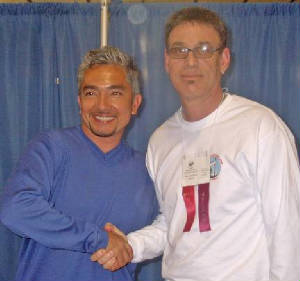Board and train can be a valuable training experience, both for you and your family dog. The process provides an intensive environment for your dog to learn good manners and basic obedience so that she can then come home and put her new skills to work while living with you.
But board and train is not a magical solution and you should not expect to get back a perfectly trained dog. Instead, the experience provides a foundation that you and your dog can expand on as long as you have a plan and remain committed to your dog's training going forward.
Keeping Up with Your Dog's Training After a Board and Training Program
When you send your dog to board and train, there are some limitations to be aware of. Most programs are extremely beneficial and your dog will learn many important new skills, including new commands, impulse control, and other good behaviors. But dogs are not great at generalizing and your dog may not realize at first that the behaviors she learned at boarding school still apply inside your home.
You also want to be sure that you are building a lasting relationship with your dog. A large part of this relationship depends on the communication between you and your dog, and is perfected through training.
To help your dog keep up the training skills acquired at board and train and prevent your dog from falling back into old unwanted behaviors, use the following steps:
- Pay Attention During the Take Home Lessons - At a reputable board and train, your dog trainer will also share with you all the skills you need to know when you get your dog back. This includes what new skills your dog learned and their commands, how to use any new tools such as e-collars, and strategies to encourage your dog's good behavior in a new environment.
- Stay Consistent with Reinforcing Behavior - It can be exciting to have your dog back after a week or more at board and train. But if you immediately let her go back to her old ways without correction, she will interpret boarding school as . temporary break from her normal routine of jumping on furniture, being hyperactive, and ignoring your commands. Continue to reinforce the behaviors you want and correct the behaviors you don't from the moment your dog gets home.
- Continue Training - Now that your dog has basic obedience, keep up on those skills and teach new ones with regular training sessions. This helps reinforce that your dog's new good manners apply everywhere and strengthens that bond between the two of you that makes training really impactful.
- Maintain Structure - At most dog boarding schools, your dog will have a lot of structure throughout her day in terms of when she walks, eats, trains, and plays. This routine is valuable for dogs so set up your own routine of training and physical activity at home and continue to follow through to create a similar structure to what your dog experienced at board and train.
Finally, do not panic if your dog seems to return to earlier behaviors shortly after she comes back home or even seems to get worse. Your dog is learning how her new skills apply in her familiar environment, which can be challenging when she may not have been asked to model those behaviors before. Continue to follow the guidelines that your board and train facility provided and reach out for help if you need additional advice. Dog training is something that relies on both you and your pup, and it will be a learning experience for both of you. Dog owners who can stay patient and consistent while also following the advice of their trainer will help their dog have the smoothest possible transition from board and train back into being a full-time member of your family.





